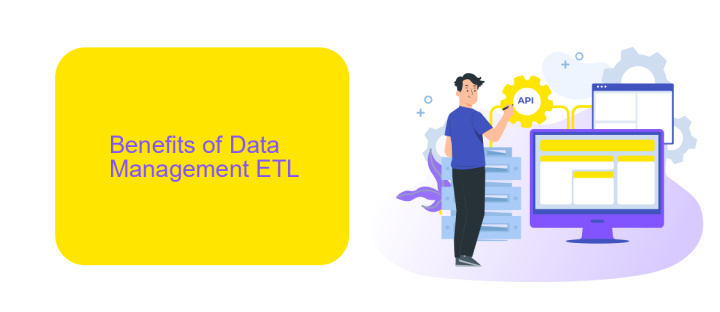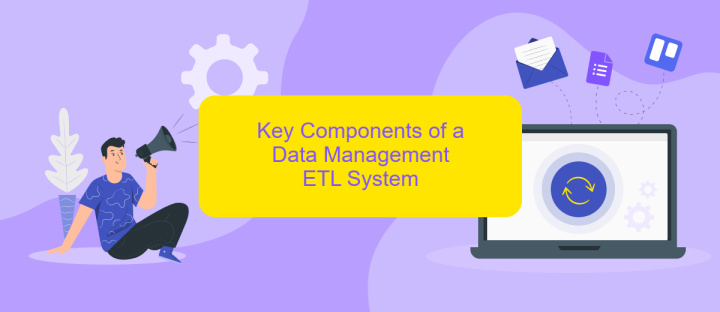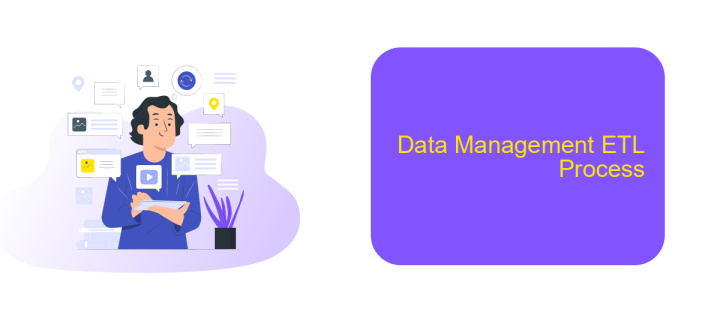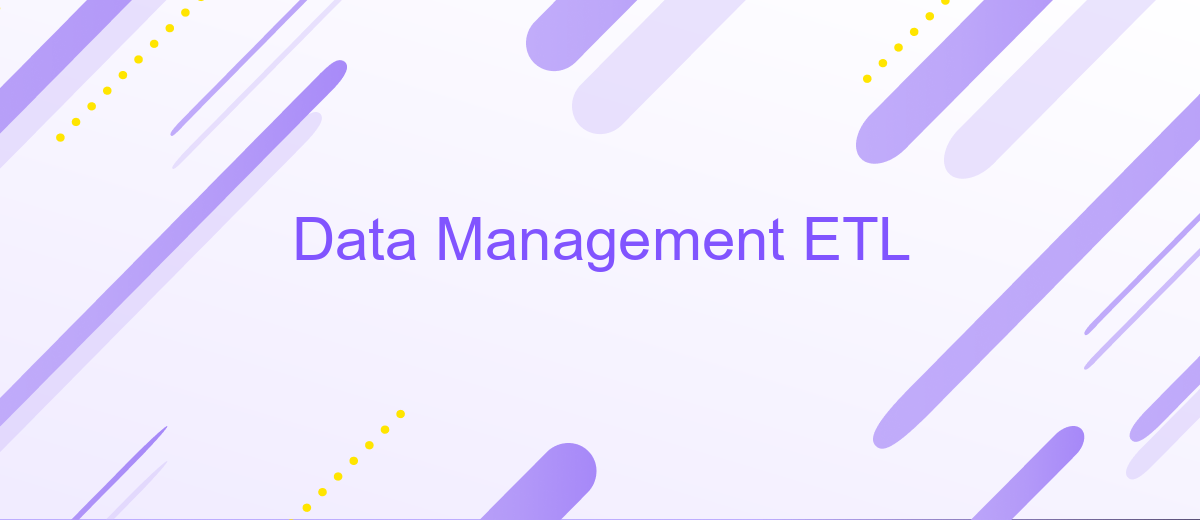Data Management ETL
Data Management ETL (Extract, Transform, Load) is a critical process in modern data handling, enabling organizations to efficiently gather, refine, and integrate data from various sources. By automating these steps, ETL ensures data integrity, consistency, and accessibility, empowering businesses to make informed decisions and drive strategic growth. This article delves into the fundamentals and best practices of ETL in data management.
Introduction to Data Management ETL
Data Management ETL (Extract, Transform, Load) is a crucial process in the field of data management, ensuring that data is efficiently moved from one system to another while being cleaned, transformed, and optimized for analysis. This process helps organizations make informed decisions by providing accurate and timely data.
- Extract: Retrieving data from various sources.
- Transform: Cleaning and converting data into a suitable format.
- Load: Importing the transformed data into a target system.
Effective ETL processes require robust tools and services to manage complex data workflows. ApiX-Drive is one such service that simplifies the integration of various data sources, automating the ETL process and ensuring seamless data flow. By leveraging tools like ApiX-Drive, organizations can enhance their data management capabilities, leading to more reliable and actionable insights.
Benefits of Data Management ETL

Implementing Data Management ETL (Extract, Transform, Load) processes offers numerous benefits that significantly enhance an organization's data handling capabilities. By automating data extraction from various sources, ETL ensures timely and accurate data collection, reducing the risk of human error. Transforming data into a consistent format enables seamless integration and analysis, providing a unified view of business operations. This streamlined process not only increases efficiency but also empowers decision-makers with reliable insights, fostering data-driven strategies.
Moreover, ETL tools like ApiX-Drive simplify the integration of disparate systems, making it easier to manage data flows across multiple platforms. ApiX-Drive offers a user-friendly interface that allows businesses to set up integrations without extensive technical knowledge, ensuring smooth data transfers and real-time updates. By leveraging such services, organizations can enhance their data management infrastructure, improve data quality, and achieve greater agility in responding to market changes. Ultimately, the benefits of Data Management ETL extend to improved operational efficiency, better compliance, and a stronger competitive edge.
Key Components of a Data Management ETL System

Data Management ETL systems are essential for transforming raw data into actionable insights. These systems streamline the process of extracting, transforming, and loading data from various sources into a centralized repository.
- Data Extraction: This component involves retrieving data from diverse sources such as databases, APIs, and flat files. Tools like ApiX-Drive can simplify this process by providing seamless integration with multiple data sources.
- Data Transformation: Once extracted, data needs to be cleaned, enriched, and formatted to meet analytical requirements. This step may involve filtering, aggregating, and joining data from different sources.
- Data Loading: The final step is loading the transformed data into a data warehouse or data lake. This ensures that data is readily available for analysis and reporting.
Efficient ETL systems are critical for maintaining data quality and enabling real-time analytics. By leveraging tools like ApiX-Drive, organizations can automate data workflows, reduce manual intervention, and ensure consistent data integration across platforms.
Data Management ETL Process

Data Management ETL (Extract, Transform, Load) is a critical process in modern data handling. It involves extracting data from various sources, transforming it into a suitable format, and loading it into a destination system. This process ensures that data is accurate, consistent, and ready for analysis.
During the extraction phase, data is collected from multiple sources such as databases, APIs, and flat files. The transformation phase involves cleaning, normalizing, and enriching the data to meet specific business requirements. Finally, the loading phase involves transferring the transformed data into a target database or data warehouse for further use.
- Extraction: Collecting data from diverse sources.
- Transformation: Cleaning and normalizing data.
- Loading: Transferring data to the target system.
Tools like ApiX-Drive can simplify the ETL process by automating data integration between various platforms. ApiX-Drive enables seamless data extraction from numerous sources and ensures that the data is transformed and loaded efficiently. This automation not only saves time but also increases the accuracy and reliability of the data management process.


Conclusion
In conclusion, effective Data Management ETL processes are crucial for organizations aiming to leverage their data for strategic decision-making. By ensuring seamless extraction, transformation, and loading of data, businesses can maintain data integrity, enhance analytical capabilities, and drive operational efficiency. Implementing robust ETL solutions not only streamlines data workflows but also minimizes errors and redundancies, thereby fostering a data-driven culture within the organization.
Moreover, integrating services like ApiX-Drive can significantly simplify the setup and management of ETL processes. With its user-friendly interface and versatile integration capabilities, ApiX-Drive enables businesses to automate data flows between various platforms effortlessly. This not only saves time and resources but also ensures that data is consistently accurate and up-to-date across all systems. Ultimately, leveraging such tools can empower organizations to harness the full potential of their data, leading to more informed decisions and better business outcomes.
FAQ
What is ETL in Data Management?
Why is ETL important?
What are the common challenges in ETL processes?
How can ETL processes be automated?
What is the difference between ETL and ELT?
Apix-Drive will help optimize business processes, save you from a lot of routine tasks and unnecessary costs for automation, attracting additional specialists. Try setting up a free test connection with ApiX-Drive and see for yourself. Now you have to think about where to invest the freed time and money!

